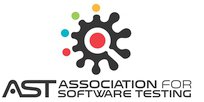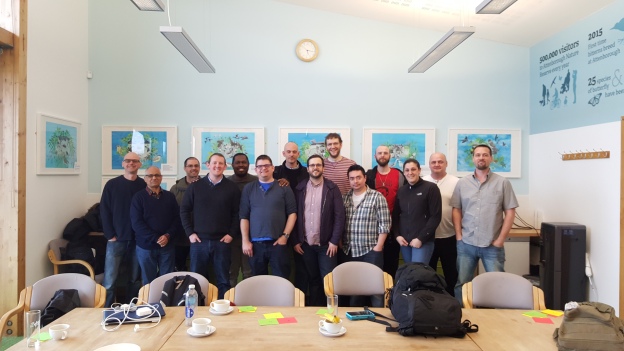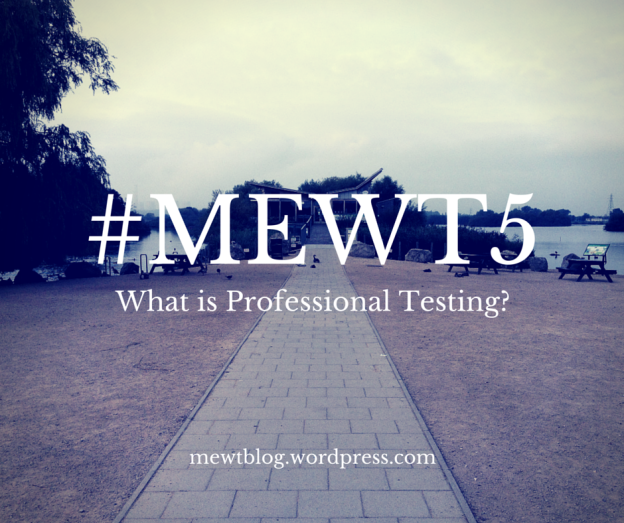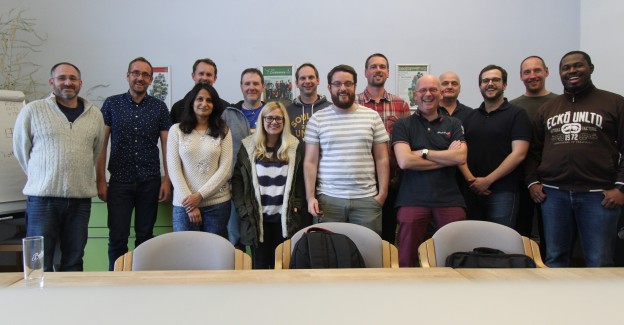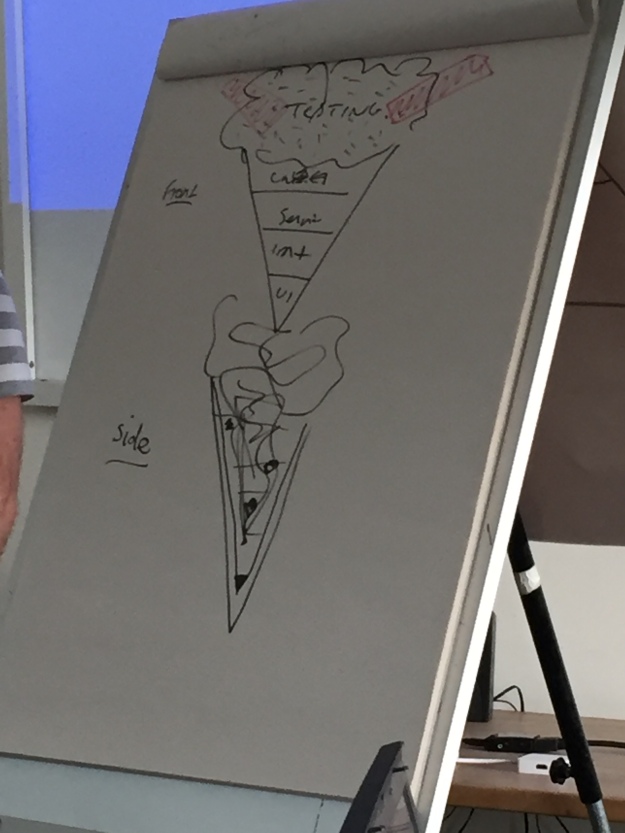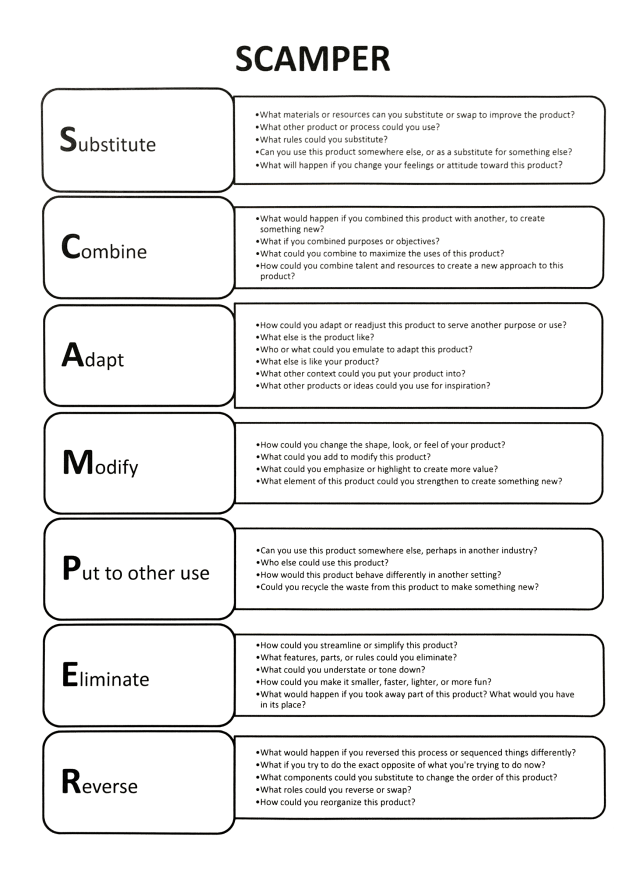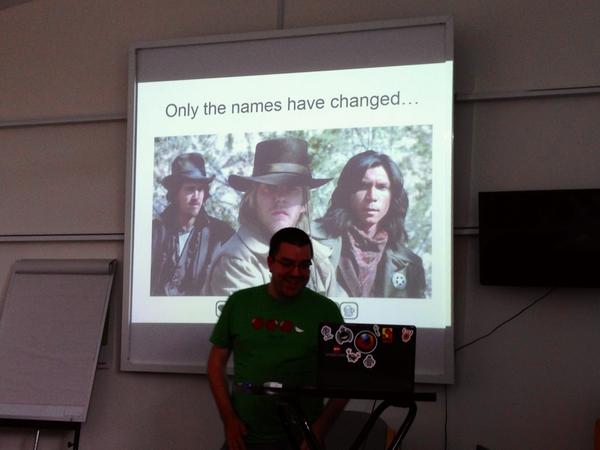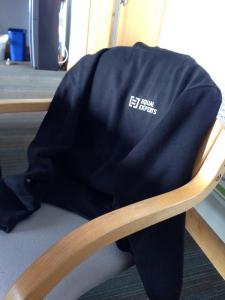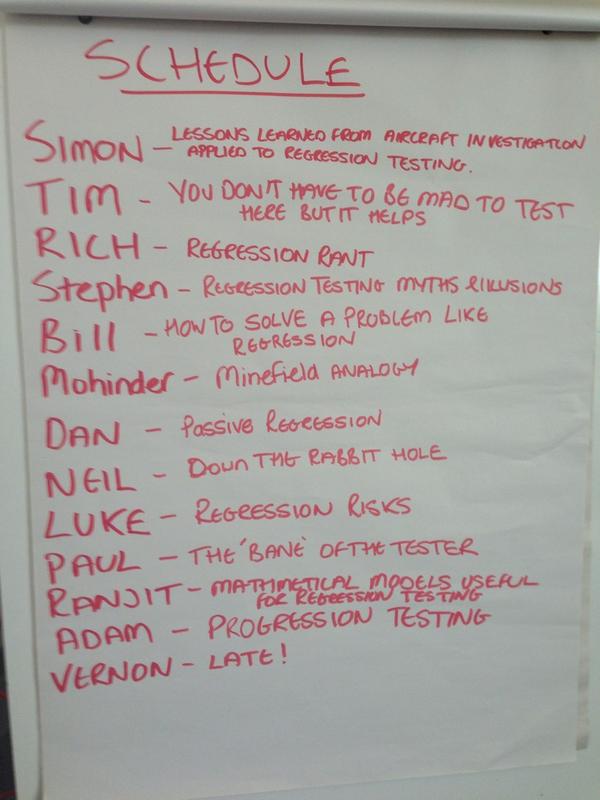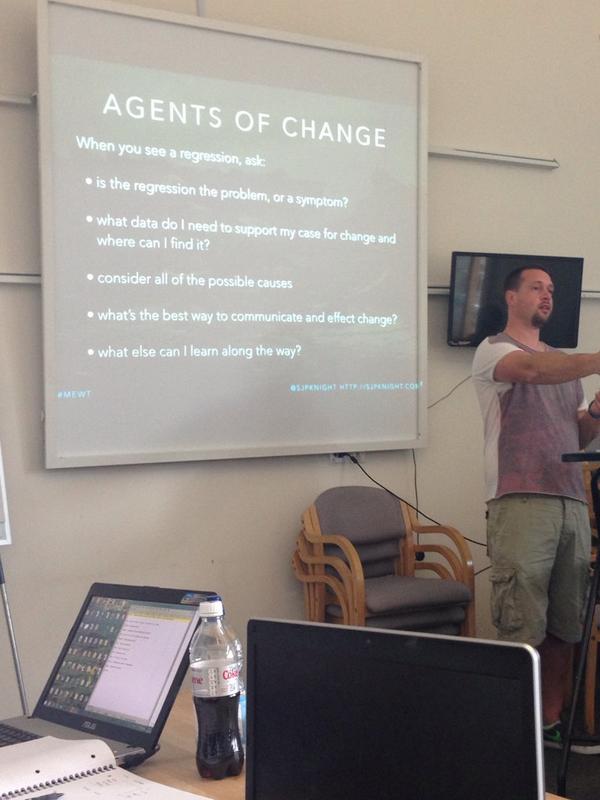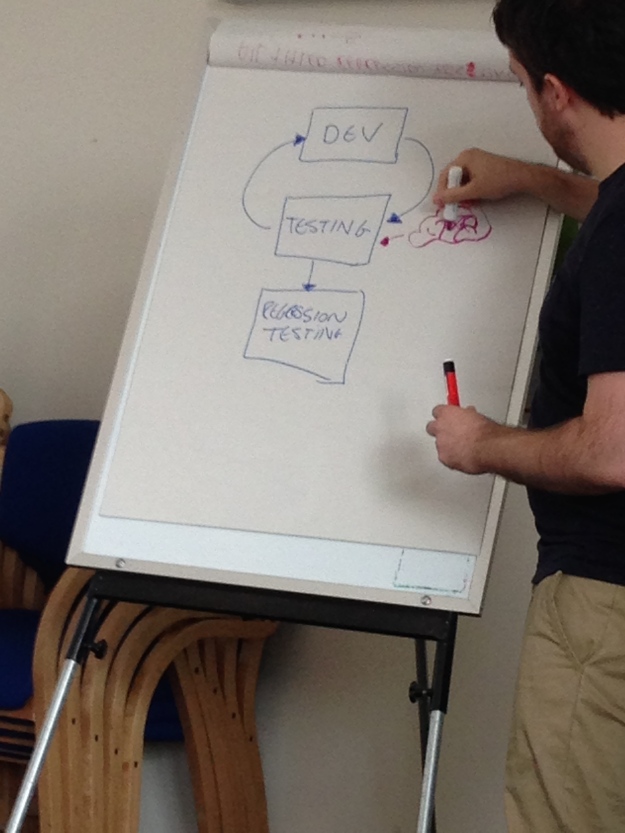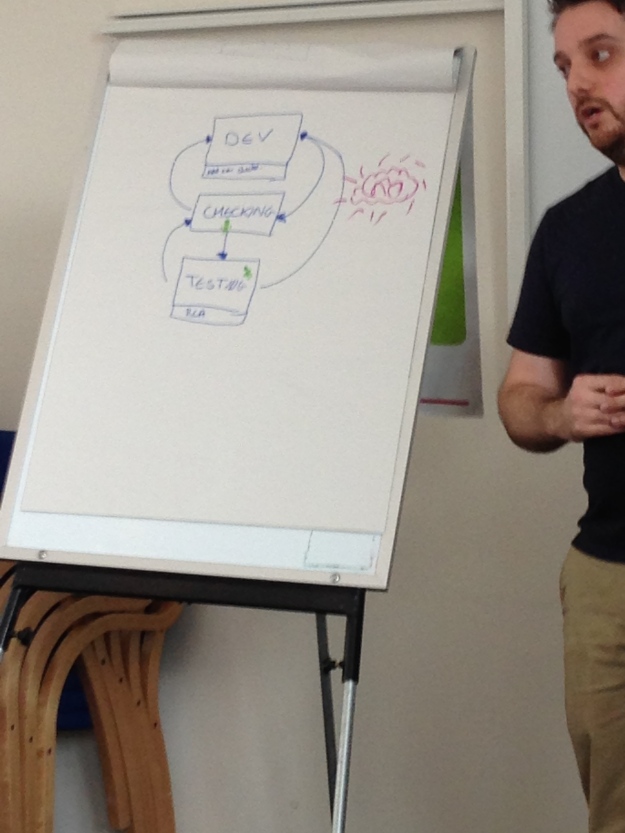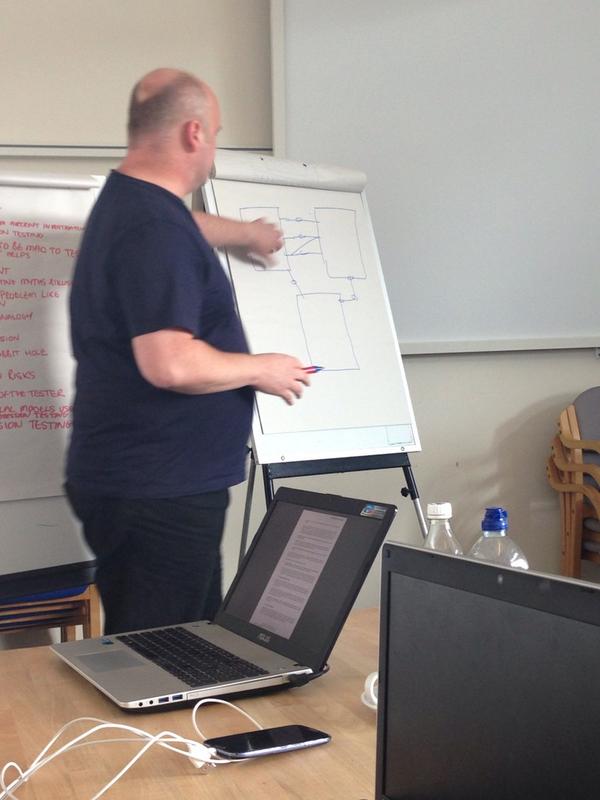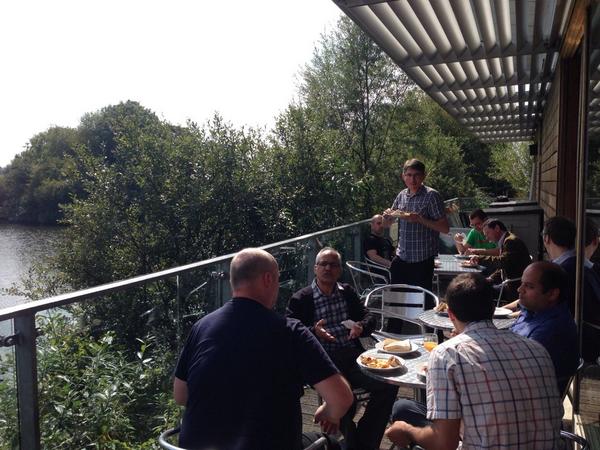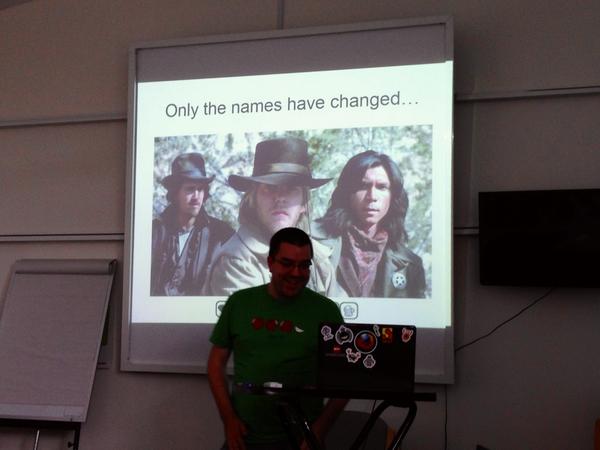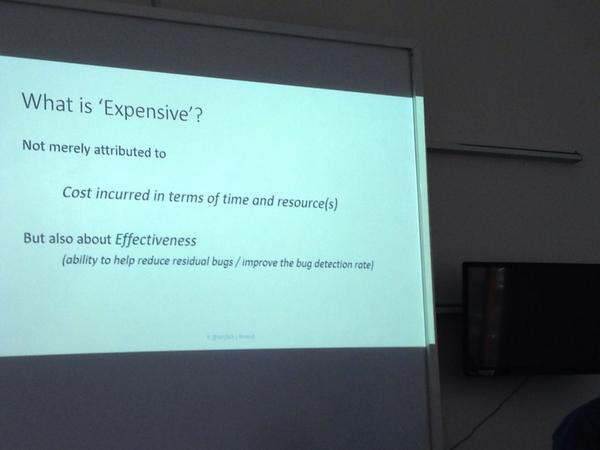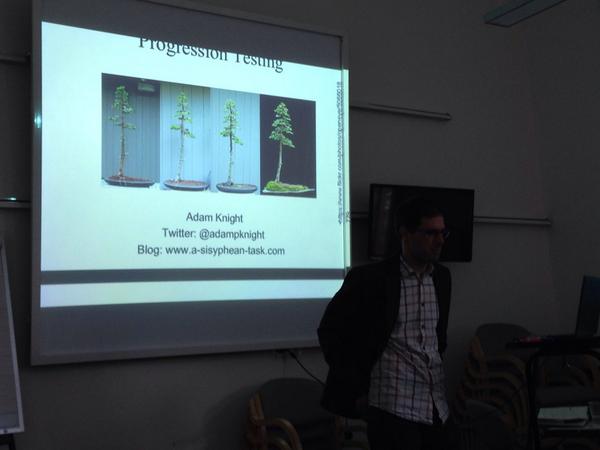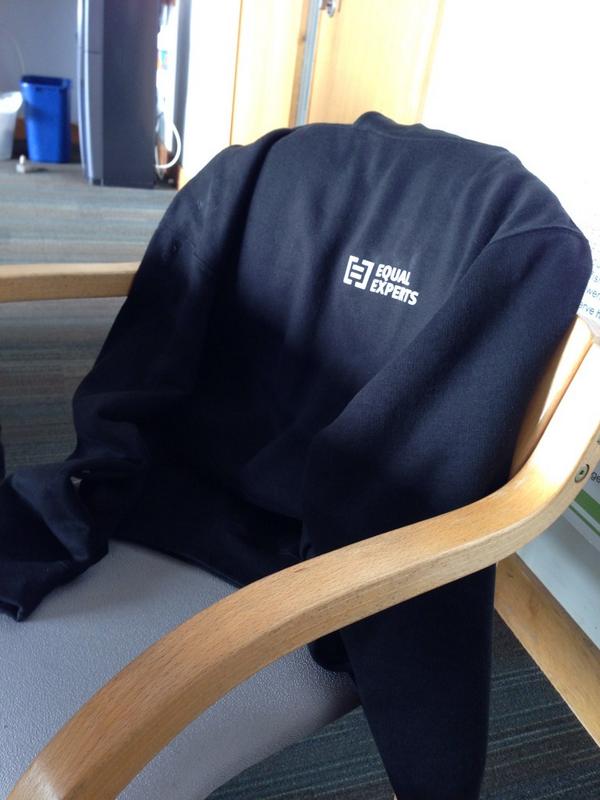The 5th MEWT Peer Conference took place on the 9th April with the by now to-be-expected excellent cast of talks, discussions and presentations. Please find them all listed below – in order of presentation on the day, along with links to blogposts, slides etc where they were used and have been made available.
Iain McCowatt – Professional Testing, not Professional Testers
I recently got handed the keys to a couple of development teams, and a handful of major change programmes. With this came the realization that I am no longer a tester: I’m a customer of testers. Whilst I’m still trying to process all the implications, I HAVE become aware of an interesting shift in perspective:
I don’t give a flying expletive deleted about Professional Testers.
Don’t get me wrong: I care deeply about testing – the insight it gives me is critical. But I can’t help wondering, so long as I have professional (adjective) testING, do I need testERS at all, let alone professional (noun) ones?
So testers, consider me a potential customer. Pick up the challenge and justify yourselves, and justify why you might want to claim to be a profession.
Adam Knight – The Oldest Profession in the World
The oldest profession in the world. We all know what it is, don’t we?
Except that until the late 19th century the now common understanding had not been established, and there were a number of professions that potentially laid claim to that title – farmers, cattle drovers, horticulturalists, engineers, landscape gardeners the military, doctors, nurses, teachers,priests and even lawyers. But when we mention the ‘oldest profession in the world’ most people will now assume a knowledge of the profession that is involved.
And so it is with “professional testing”. Mention “professional testing” and many familiar with software development will have assumptions around what is involved. In my early career professional testing was defined as ‘having ISEB certification’, nowadays there are different expectations that cover broader areas, but can be just as restricted in their criteria.
I believe that the number of roles that can lay claim to undertake ‘professional testing’ as an activity is far wider than is included in the assumptions of many. As well as a huge variety of roles with the moniker of tester – web testers, mobile testers, hardware and embedded software testers, test software developers, database testers, performance testers and penetration testers to name a few, there are also many other roles that don’t include the word “test” in their title yet still have a professional responsibility for testing implicit in their role, such as developers, product owners, technical support, business project owners and often even contractually some customers. All of these will be involved in testing in a professional capacity, and so must therefore be undertaking ‘professional testing’.
In this talk I will look at the assumptions that may come with a tag of ‘professional testing’, what those assumptions look like and how they differ from the people doing professional testing that I’ve encountered. I’ll then go on to discuss some of the roles that could lay claim to the title of ‘professional tester’ and how the role of testing fits in with their profession. I’ll raise some questions for discussion around how the various individuals involved in testing as part of their profession might benefit from identifying the testing elements to their roles, and how those folks who are called testers might end up being more professional themselves through helping others to be more professional in their testing.
James Thomas – What is What Is Professional Testing?
In this talk I’ll use the MEWT topic as a lens through which to view itself and our instincts about it, asking what we think a professional tester (whatever that is) might do when presented with the MEWT 5 brief. I’ll explore areas such as inconsistencies, ambiguities and underspecification in the brief, the relationship between the tester and stakeholders (the MEWT content owner for the purpose of this exercise), and the uncertainty that’s always present in any project that requires novel work. As I do this, I’ll try to tease out a set of “reasonable expectations” for a professional tester and then test them in turn against a broader context.
James has written a couple of posts about the event: The notes for his talk here, and his further thoughts on the events of the day here.
Dan Caseley – Perceptions of Professional Testing – fixing it with what we teach our juniors
I’ve gathered a collection of thoughts from devs, stakeholders and recruiters on who we are and what we do. Being awesome generates the good feedback, but it isn’t enough to fix the bad stuff that pervades our industry. We do that with what we teach others which they take on to their next role, making better testing viral.
Abby Bangser – Introduction of the “Full Stack” tester
One model for looking at a person’s skills is the T shaped model. This is the idea that someone will have a breadth of knowledge in their field, but then a depth of knowledge in one particular area. To me, the breadth piece is as necessary as the depth to define a professional outlook. How would you feel if you fell and possibly broke your arm, and the doctor near by said they could not help because they are a cardiologist, not an Orthopaedic. Now you would expect to need a specialist to be able to perform any necessary surgery, but you would hope the near by doctor could at least know what steps must be taken and how to mitigate the current situation. To bring this back to MEWT and software testing, I think that to be software professional, we cannot segregate into “technical” and “non-technical” testers. Let’s talk about a “full stack” tester as a possible definition of a professional tester.
Abby’s thoughts are soon to be published on James Thomas’ blog as a guest post. Watch here for further news.
Mohinder Khosla – Being professional is Not an Accident
In one of my favourite books, The Art of War, Steven Pressfield states that being a professional is all about showing up, doing your work and not letting adversity defeat you. Being a professional requires you to overcome your vices so that you can sit down and produce the best work possible.
Being a software tester is about a whole lot more than just testing. If you want to be a better tester-a better anything really-you need to focus on the entire person not just one or two areas of your life. It is about career, mind, body and spirit if you believe in such things.
Being a professional tester requires even more commitments that focus on forming good habits of time management and well prepared at all time, setting goals and planning, standing your ground and sticking to your principles. Professional tester should have the ability to walk away from situations when lower quality standards are forced upon them. That means they are expected to be not only consistent but also quality and self-improvement seekers, making correct choices in both technically and ethnically and playing to their strengths and improving weaknesses.
I will briefly discuss them with examples where appropriate to convince that being a professional tester is no freaking accident. It requires commitment, dedication and continuous learning.
Doug Buck – Growing into Testing
The talk is about my perceptions of the changes that took place during a period of professional growth when I transitioned into a full time testing role, covering (hopefully in detail!) the points below:
- professional responsibility
- self-directed learning
- questioning
- professional development
- key changes in my attitude before and after
Doug’s thoughts on the day can be found here.
Danny Dainton – Being a Professional Tester is not the same as Being in a Professional Job
I have always believed that the job that you do has nothing to do with how professional you are in that job. For me, professionalism is a set of core values or beliefs that are internal and specific to each individual person.
I currently find myself as the sole tester working within a feature team but also with the added pressure of being a remote worker. My previous experiences have given me an excellent set of core values that has enabled me to be an effective remote employee and a highly motivated, focused and disciplined individual.
At 17, I joined the British Army, one of the most professional organisations in the world and through my 11 years of service, I lived by these 6 core values:
- Courage
- Discipline
- Respect
- Integrity
- Loyalty
- Selfless Commitment
I have kept these with me since leaving the forces and conduct my daily testing, aligned to these values.
My talk will be a brief look back on the last 10 years of my life, touching on the key areas where I have applied these professional values during my very short testing career and how these have shaped the direction of where I want to be.
Mike Loundes – The Contractor Attitude
Also slated to speak but unable to in the end due to a family emergency. Mike’s abstract is below and he has written up the content of his proposed talk here.
Having been freelance for over a decade I’d like to discuss the perception of professional testers and how the term professional is perceived by the not only the different hierarchical levels within companies but how its perceived by peers and colleagues within those companies, on many of my engagements I’ve surprised people when they learn that I’m ‘a contractor’ and that I’m not ‘a permanent member of staff’ because I don’t have the ‘contractor attitude’, what exactly is the contractor attitude and how is that perceived differently from professionalism?
Also in attendance – Bill Matthews [organising], Vernon Richards [facilitating] & Simon Knight [content owner].
Many thanks to our kind sponsors, The Association for Software Testing. 